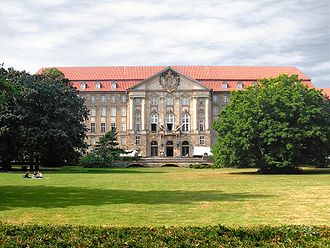
Back مجلس مراقبة الحلفاء Arabic Conseyu de Control Aliáu AST Кантрольны савет BE Comissió Aliada de Control Catalan Spojenecká kontrolní rada Czech Det allierede kontrolråd Danish Alliierter Kontrollrat German Συμμαχικό Συμβούλιο Ελέγχου Greek Aliancita Kontrolkonsilantaro EO Consejo de Control Aliado Spanish

The Allied Control Council (ACC) or Allied Control Authority (German: Alliierter Kontrollrat), and also referred to as the Four Powers (Vier Mächte), was the governing body of the Allied occupation zones in Germany (1945–1949/1991) and Austria (1945–1955) after the end of World War II in Europe. After the defeat of the Nazis, Germany (less its former eastern territories) and Austria were occupied as two different areas, both by the same four Allies. Both were later divided into four zones by the 1 August 1945 Potsdam Agreement. Its members (Four-Power Authorities) were the Soviet Union, the United Kingdom, the United States, and France. The organisation was based in Schöneberg, Berlin.
The council was convened to determine several plans for postwar Europe, including how to change borders and transfer populations in Central Europe. As the four powers had joined themselves into a condominium asserting supreme power in Germany, the Allied Control Council was constituted the sole legal sovereign authority for Germany as a whole, replacing the civil government of Germany under the Nazi Party. In 1948, the Soviets withdrew from the ACC due to its conflict with the western Allies, who then established the Allied High Commission. In 1949, two German states (West and East Germany) were founded.